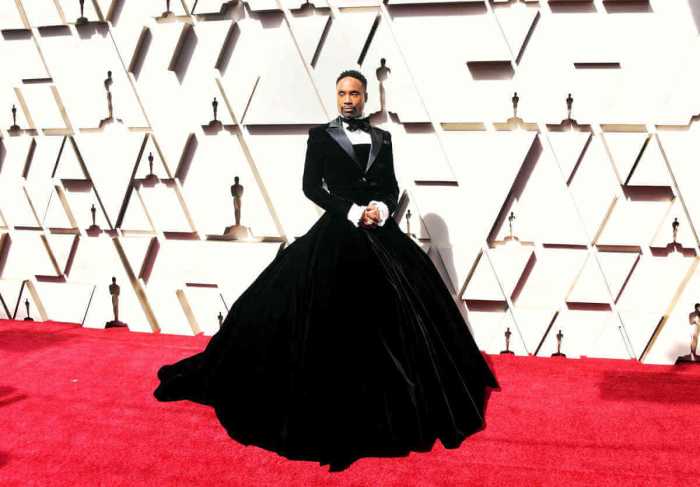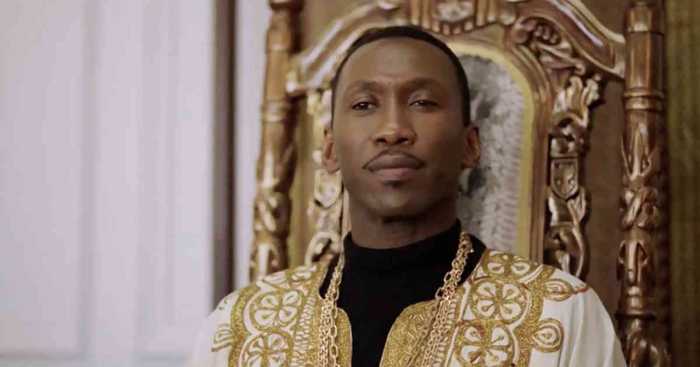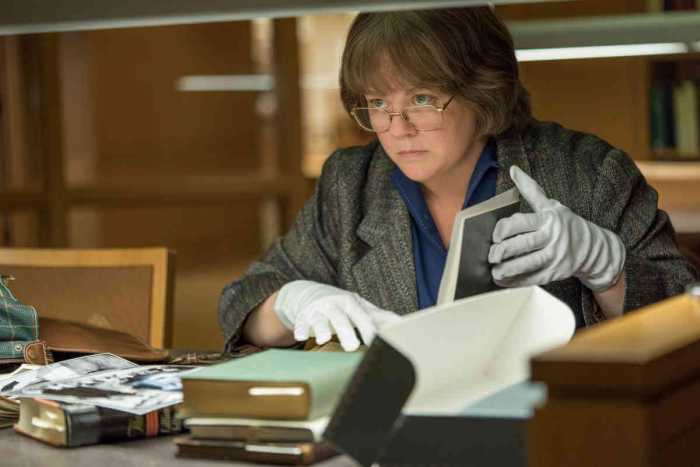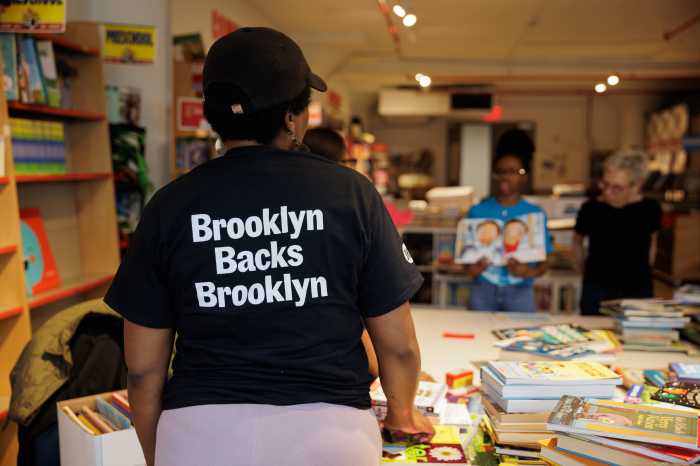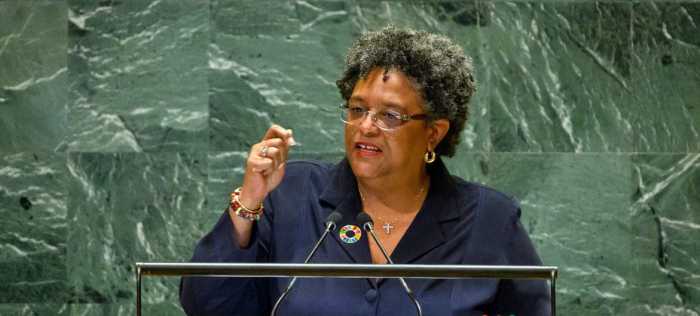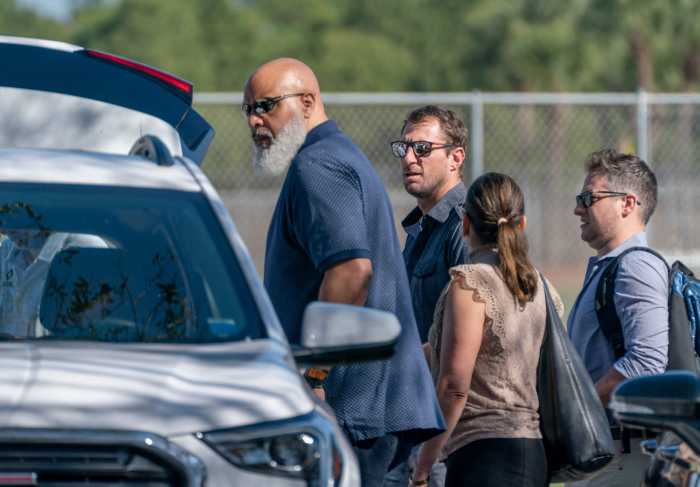Rafe Spall and Daniel Craig in Harold Pinter’s “Betrayal,” directed by Mike Nichols. | BRIGITTE LACOMBE
Harold Pinter’s “Betrayal” is, aptly, deceptive in its complexity. What at first seems like a rather standard tale of marital infidelity is actually a larger meditation on human nature. Our natural state, Pinter suggests, is one of betrayal in a kind of Darwinian struggle for primacy in any situation — marriage, publishing, squash, you name it. Fidelity, honor, and any form of morality are artificial constructs of the social order that run counter to our inherent natures. Ultimately, however, our natures cannot be contained.
Mike Nichols’ taut new production embraces this idea and brings a new perspective to the tale of a love triangle among a married couple, Robert and Emma, and Jerry, Robert’s best friend and Emma’s lover for nine years. The story is told in reverse. It begins after the end of the affair in 1977 and tracks back to its beginning and a boozy, pot-infused party in 1968. As the tale unfolds, the audience is on high alert not just to the sex but also to the structure of lies and omissions that roil the patina of British propriety. Robert knows about the affair long before Jerry thinks he does, and Pinter being Pinter, it’s what’s unsaid that is so unsettling.
But here’s the thing about this production. The characters all have a warmth about them, which makes the overall affect all the more chilling. Robert seems to be blasé about the affair, which only heightens Emma’s frustration and Jerry’s guilt when he’s confronted. Robert’s cynicism is perversely appealing, resulting in an altogether contemporary reading perfectly calibrated to a time when marital infidelity has lost its ability to shock. I’m not sure it’s what Pinter intended, but Nichols’ direction gives the play a visceral immediacy that keeps one on the edge of the seat.
Two major British writers are back –– Pinter excites, Rattigan falls short
The central question is: Who is better equipped to survive — the man who sees things as they are or the man who struggles against conventional –– that is, artificial –– morality? Yeats figures briefly in the conversation between the men — Robert and Jerry are literary types — and the poet’s line, “cast a cold eye on life, on death,” would argue for the realist. Pinter is no slouch.
The stellar cast is more than equal to the material. Rachel Weisz is complex and conflicted as Emma, who manages to be sympathetic even in her betrayals. Rafe Spall is outstanding as Jerry, the character most conflicted by the contradictory elements in his nature. Daniel Craig, the production’s crowd appeal, is extraordinary. The cold cynicism behind his charming nature and the conflict between his love for Emma and suppressed rage at Jerry are at first understated, but the power of his performance is in its subtlety. Robert is the kind of killer who waits as his victims exhaust themselves before striking. Craig’s is a haunting and masterful performance.
Ian MacNeil’s set of rooms that float in and out and Brian MacDevitt’s lighting, which makes powerful use of color temperature in different scenes, enhance this bold and exciting production.
Michael Cumpsty and Alessandro Nivola in Terence Rattigan's “The Winslow Boy.” | JOAN MARCUS
Roundabout continues to be the go-to company for lavish productions of obscure classics. Its latest is an entertaining production of Terence Rattigan’s “The Winslow Boy,” the first in New York in more than 60 years. It tells the story of the Winslow family’s turmoil when the youngest son is expelled from an elite school for stealing and the efforts invested to prove his innocence.
Imported from London’s Old Vic, the production, under of Lindsay Posner’s direction, is done well, but it can’t compensate for a play that is creaky and dated. It trades in fairly stereotypical characters — the cantankerous father, wastrel brother, long-suffering mother, and so on — and has little to say outside the quaint notion of family honor above all. “Let right be done!” is the refrain that rings through at various points.
Many of the more exciting plot turns happen offstage and are reported on by other characters. When something actually happens onstage, however, it can be quite delightful. The family calls in the famous lawyer Sir Robert Morton, who may or may not take the case, and his examination of 13-year-old Ronnie, the alleged criminal, is lively and dramatic. Later, when Sir Robert woos daughter Catherine Winslow, the tension is both comic and heartbreaking, very nearly a satire of British reserve. Still, the play, clocking in at nearly three hours, can’t quite generate excitement
The cast is excellent. Roger Rees is the patriarch, and Mary Elizabeth Mastrantonio plays his wife. Both are sure and appealing in their parts. Michael Cumpsty, the family’s regular lawyer who is in love with Catherine and hopes to win her after she’s jilted, is appealing. The evening, though, belongs to Charlotte Parry as Catherine and Alessandro Nivola as Sir Robert. It is these two who bring real life to an otherwise overly staid evening.
BETRAYAL | Ethel Barrymore Theatre, 243 W. 47th St. | Tue., Thu. at 7 p.m.; Wed., Fri.-Sat at 8 p.m.: Wed., Sat.-Sun. at 2 p.m. | $52-$152 at telecharge.com or 212-239-6200
THE WINSLOW BOY | American Airlines Theatre, 227 W. 42nd St. | Tue.-Sat. at 8 p.m.; Wed., Sat.-Sun. at 2 p.m. | $52-$127 at roundabouttheatre.org or 212-719-1300



